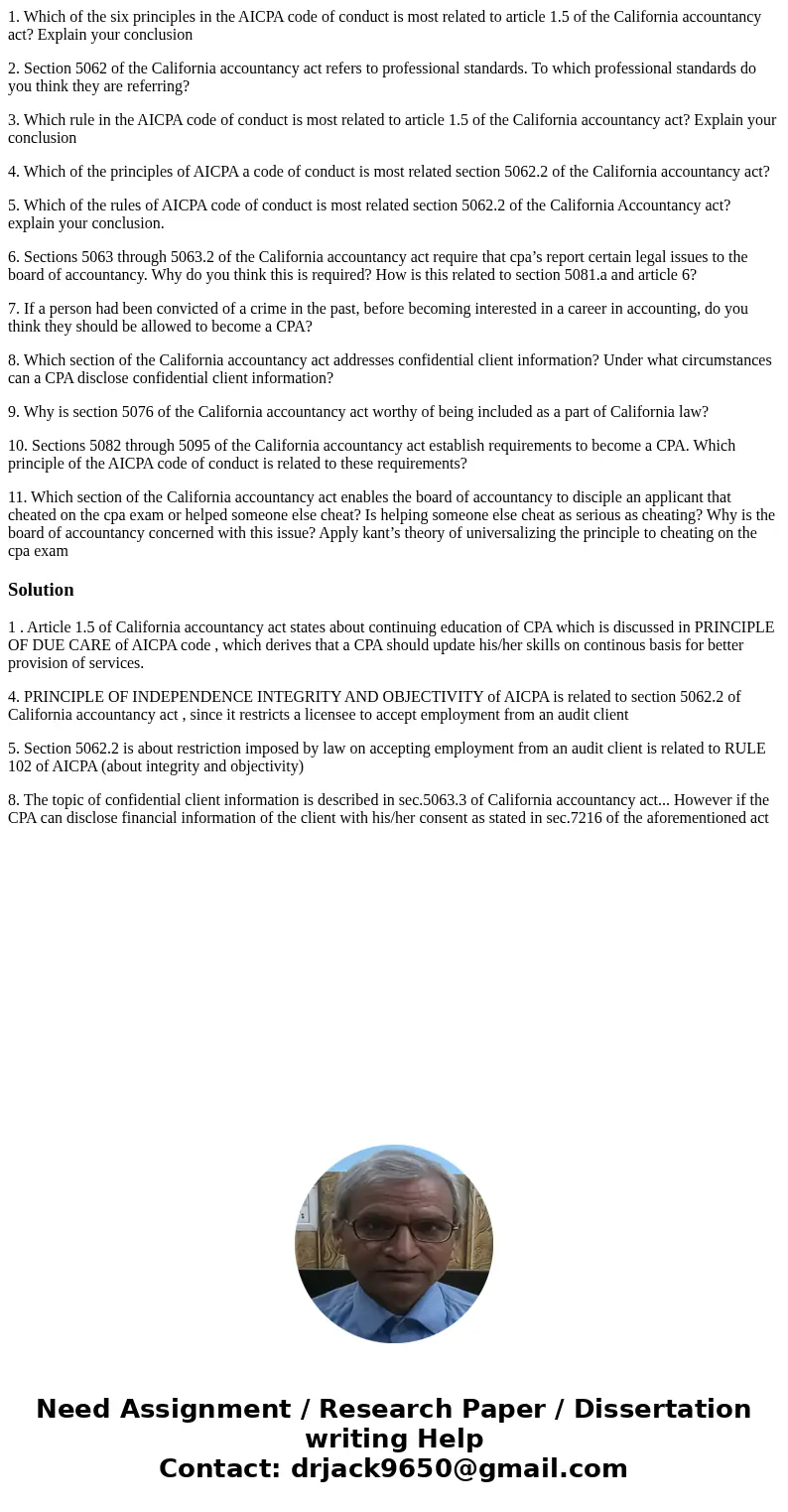1 Which of the six principles in the AICPA code of conduct i
1. Which of the six principles in the AICPA code of conduct is most related to article 1.5 of the California accountancy act? Explain your conclusion
2. Section 5062 of the California accountancy act refers to professional standards. To which professional standards do you think they are referring?
3. Which rule in the AICPA code of conduct is most related to article 1.5 of the California accountancy act? Explain your conclusion
4. Which of the principles of AICPA a code of conduct is most related section 5062.2 of the California accountancy act?
5. Which of the rules of AICPA code of conduct is most related section 5062.2 of the California Accountancy act? explain your conclusion.
6. Sections 5063 through 5063.2 of the California accountancy act require that cpa’s report certain legal issues to the board of accountancy. Why do you think this is required? How is this related to section 5081.a and article 6?
7. If a person had been convicted of a crime in the past, before becoming interested in a career in accounting, do you think they should be allowed to become a CPA?
8. Which section of the California accountancy act addresses confidential client information? Under what circumstances can a CPA disclose confidential client information?
9. Why is section 5076 of the California accountancy act worthy of being included as a part of California law?
10. Sections 5082 through 5095 of the California accountancy act establish requirements to become a CPA. Which principle of the AICPA code of conduct is related to these requirements?
11. Which section of the California accountancy act enables the board of accountancy to disciple an applicant that cheated on the cpa exam or helped someone else cheat? Is helping someone else cheat as serious as cheating? Why is the board of accountancy concerned with this issue? Apply kant’s theory of universalizing the principle to cheating on the cpa exam
Solution
1 . Article 1.5 of California accountancy act states about continuing education of CPA which is discussed in PRINCIPLE OF DUE CARE of AICPA code , which derives that a CPA should update his/her skills on continous basis for better provision of services.
4. PRINCIPLE OF INDEPENDENCE INTEGRITY AND OBJECTIVITY of AICPA is related to section 5062.2 of California accountancy act , since it restricts a licensee to accept employment from an audit client
5. Section 5062.2 is about restriction imposed by law on accepting employment from an audit client is related to RULE 102 of AICPA (about integrity and objectivity)
8. The topic of confidential client information is described in sec.5063.3 of California accountancy act... However if the CPA can disclose financial information of the client with his/her consent as stated in sec.7216 of the aforementioned act

 Homework Sourse
Homework Sourse